https://www.lifegate.it/limone
- |
[…] So, when your hand
squeezes the hemisphere
of the cut
lemon on your plate,
a golden universe
you spread,
a yellow chalice
of miracles.[…]
“Ode to Lemon” Pablo Neruda
And as if by magic the beneficial power of lemon it spreads in dishes, enriching the dishes it perfumes with its organoleptic properties so rich that it is considered one of the fruits that has the most.But in addition to its virtues and benefits, it is important to know the history of this fruit, its unexpected botanical origins and the many uses that can be made of it, in the kitchen, at home or in the daily beauty routine.Once the value of the lemon is known, there will no longer be any excuses for leaving it to fester all alone in the refrigerator.
Origins and history of the lemon across cultures
The origins of the lemon are uncertain, but according to scientific research criteria that have evaluated the climatic zone, parasites and historical finds, it seems that they lead back to the China, where it was cultivated already before the Song dynasty (960-1279 AD), but also in the Indian region ofAssam and to the north of Burma.Manuscripts and paintings depict lemons as early as 2500 years BC.In 2000 BCa population of the Indus valley (now Pakistan) knew them and they ancient Egyptians they used them to embalm mummies, then leaving some specimens in the tombs.THE Greeks they imported them from Media (ancient north-western Persia, roughly corresponding to present-day north-western Iran) to perfume and protect linen from moths.Mosaics a Carthage, frescoes and some findings a Pompeii testify that the ancient Romans knew lemons or in any case had learned about them in their countries of origin.Virgil wrote about it, as an antidote against poisons.
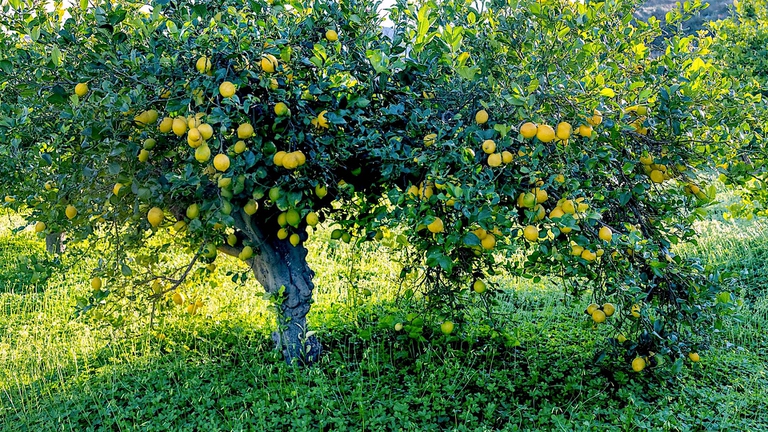
For his food use you have to wait around11th century when he Arabs, who already appreciated its culinary characteristics, spread it to the Middle East. Crusaders And pilgrims from the Holy Land they then brought some lemon plants to Italy and from there their cultivation began.Lands of choice were our southern regions, among Sicily, Calabria And Campania, where the cultivations of the Amalfi Coast are still famous.From there, thanks to Amalfi's trade, lemons arrived throughout Italy, enriching the tables of our peninsula.Today lemons are also successfully grown in Liguria as in the basin of Lake Garda.In the rest of the world they are cultivated in areas with a sub-tropical climate, constantly humid and hot. India, Mexico and countries of Central and South America they are the main producers.
Botanical characteristics and varieties
Do you know the town where lemons bloom?
Golden oranges shine in the green foliage
A light wind blows from the blue sky
The myrtle is peaceful, the laurel is serene
Do you know him?
Over there, over there
I would like to go with you, my beloved!
Johann Wolfgang Goethe
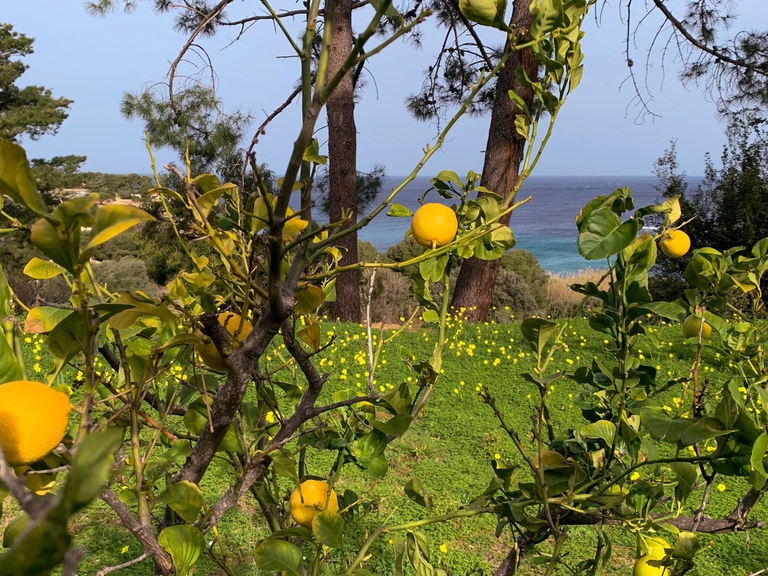
Lemon is a citrus, a Citrus, belonging to the family of Rutaceae.It seems to be not an "ancestral" species, but rather a hybrid.According to genetic studies it is probably the result of a cross between pomelo and cedar or between cedar and bitter orange.Today it is considered a species in itself due to the fact that it preserves and repeats its morphological characteristics, and is cultivated as an autonomous species for grafting or cutting.As we were saying, the countless varieties of lemon are grown in the countries of the sub-tropical belt with a constantly hot and humid climate.It is a tree that varies between 3 and 6 meters in height.The leaves are dark and the flowers white, called orange blossoms, among the most intoxicating and fragrant in the world.From each of them they develop fruits spherical with protuberances at the poles of a beautiful bright yellow colour, real lemons.Like all citrus fruits, they are considered hesperides that is, fleshy fruits, similar to the modification of a berry made up of acid pulp (endocarp), juicy and divided into segments, albedo (mesocarp) bitter and spongy, and peel (pericarp) resistant, thick and rich in essential oils.In lemons there zest it is rather thick, rough or smooth.Even thealbedo, a white "sponge" with a bitter taste, is more or less thick.There pulp it is cored, contains seeds and is juicy, tart and aromatic.
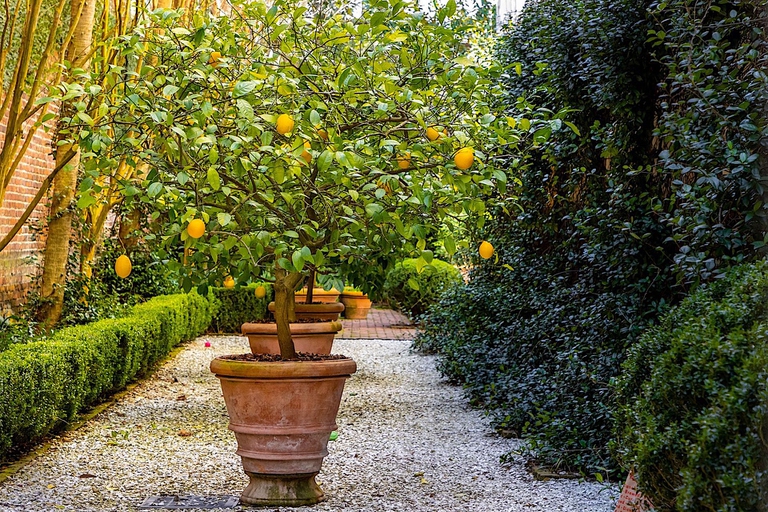
The lemon plant is cultivated, even at ornamental purpose, and can have two blooms, in spring to harvest the fruits from November to May, and in August and September to reap the fruits from May onwards.In Italy, in areas with a suitable microclimate, such as Sicily, lemons can be enjoyed in four different periods:
- fall:first flower, with smooth skin and yellow colour
- winter:in January, with yellow skin
- spring:in April, biancatto, with lighter skin
- summer: green, with green peel
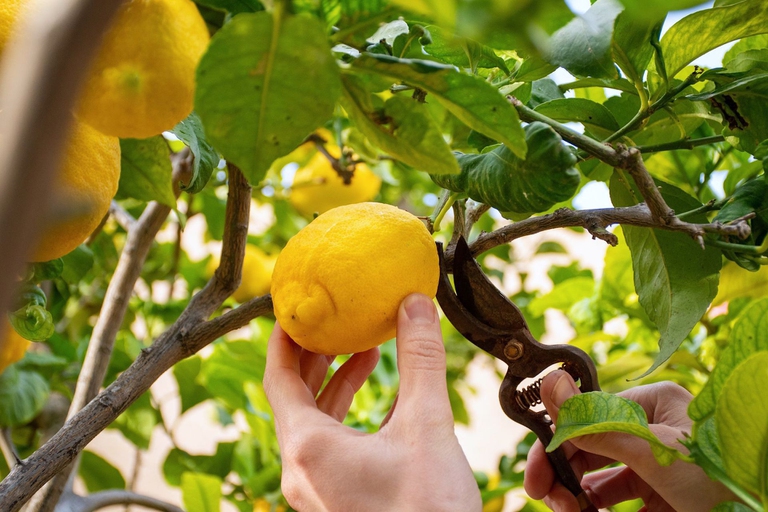
Properties and health benefits
The lemon fruit has remarkable properties that make it precious for our health.As with most citrus fruits, lemons contain a lot of water and are a treasure chest of vitamin C (i.e. ascorbic acid) a valid ally in fighting i cooling disorders typical of the winter period.Drink lemon juice, according to some studies could help prevent kidney stones from recurring.
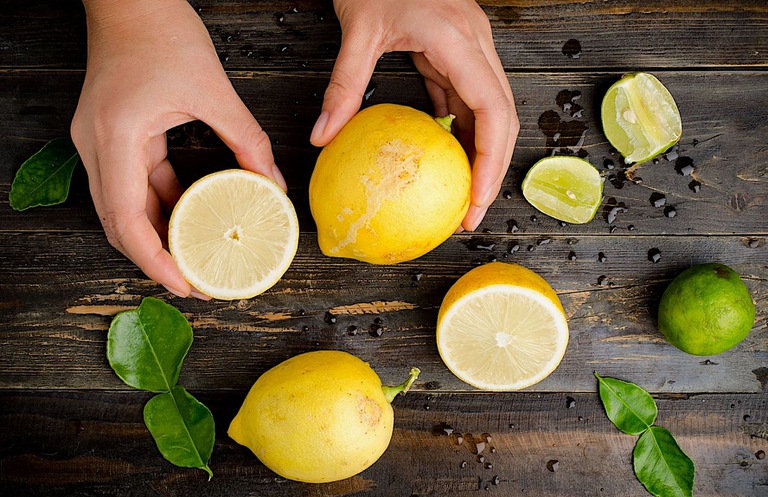
For 100 g of lemon pulp or juice there are 50 mg of vitamin C in the pulp and 43 mg in the juice.The presence of is also high antioxidants (which repair cellular damage) e mineral salts, like the potassium, with 140 mg for both pulp and juice.The calories are 11 kcal for the pulp and 6 kcal for the juice.The essential oils present in the peel are limonene, terpene, camphene, phellandrene and pinene.They have a good bactericidal, antiseptic and antifungal action, a bit like the juice, useful for fighting sore throats and gum problems.
Scientific research
The study of the American professor Jennifer Di Noia, from William Paterson University in Wayne (New Jersey), of 2014, identified foods that, for every 100 grams, provide at least 10 percent of the recommended daily dose of nutrients, minerals and trace elements essential for health.Lemon, surpassing orange, strawberry, grapefruit and blackberry, proved to be the fruit capable of offering the best contribution of nutrients per calorie: The 20 percent of the daily intake per 100 grams of product.
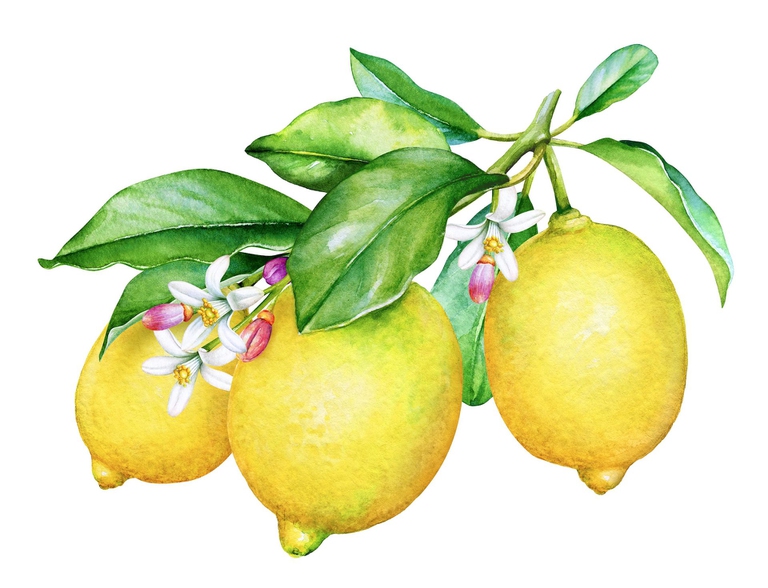
In short, since compared to other foods it contains greater quantities of nutrients and substances that bring benefits, contributing to psychophysical well-being, lemon is often defined as a sort of superfruit or superfood, a term closely linked to the world of marketing, therefore to be used with caution.In 2007, in fact, the European Union banned the use of the name "superfood" on food packaging, so as to limit its use for marketing purposes.
Culinary uses of lemon
It is difficult for lemons to be consumed as a complete fruit, but they are still the ingredient of many culinary preparations.Of this delicious fruit, mainly the juice and zest are used in cooking.With the juice squeezed from a very fresh and preferably organic or untreated lemon, you can obtain a thirst-quenching juice which, softened with water, sugar or honey, will give the timeless lemonade.It should be consumed freshly squeezed so as not to spoil the precious vitamin C, which, among other things, also facilitates the intake of iron.
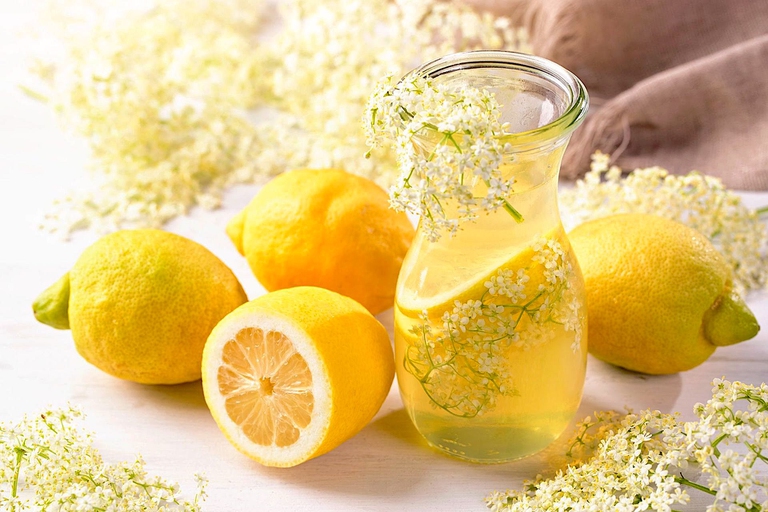
A splash of lemon juice on meats and vegetables allows you to assimilate animal and vegetable iron from these foods.To try on lentils or withchickpea hummus.
Lemon juice can then replace vinegar in the seasoning salads, for a more delicate flavour.Also great for marinate meat or fish, or for one vinaigrette with which to flavor vegetables.With the zest grated, very aromatic, it is seasoned on pasta, white rice, prawns or anchovies, just to give a few examples.And then there are the desserts, from the more than classic custard, to soft cakes, biscuits and jams, or sorbets and granitas.
In the absence of fresh fruit it is possible to use theessential oil of lemon.Besides being invigorating and others stimulate circulation, a few drops with the heat off gives the risotto a delicious scent, and to desserts such as cakes or mousses, it gives an intense and very fresh aroma.
Alternative uses of lemon at home and in the beauty routine
The many virtues of lemon also enrich your home and beauty routine.Any examples?
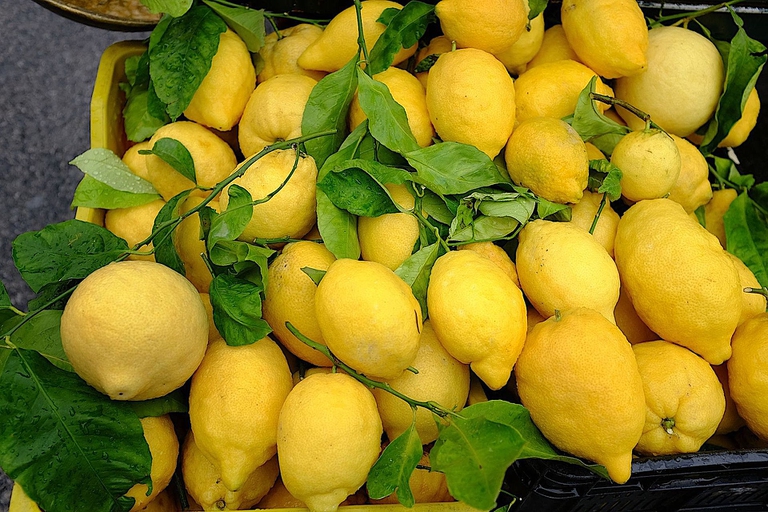
At home
To help you with household chores with a natural touch you can use lemon juice (diluted in water) to clean the microwave, for example deodorize cutting boards and environments, or perhaps the refrigerator (putting one inside cut in half).Try it for yourself too shine copper, aluminum and brass:always cut it in half, sprinkle the surface with coarse salt and rub it delicately on the surface of the dishes, the result will amaze you!
Beauty routine
In the beauty routine, the rich presence of vitamin C in lemon helps the beauty of the skin skin, helping to prevent aging.Being astringent, it smoothes it and reduces its greasiness.It also helps the health of scalp And fights wrinkles.They are all beneficial anti-aging which, according to the American Academy of Dermatology, would be visible after a month of constant routine.
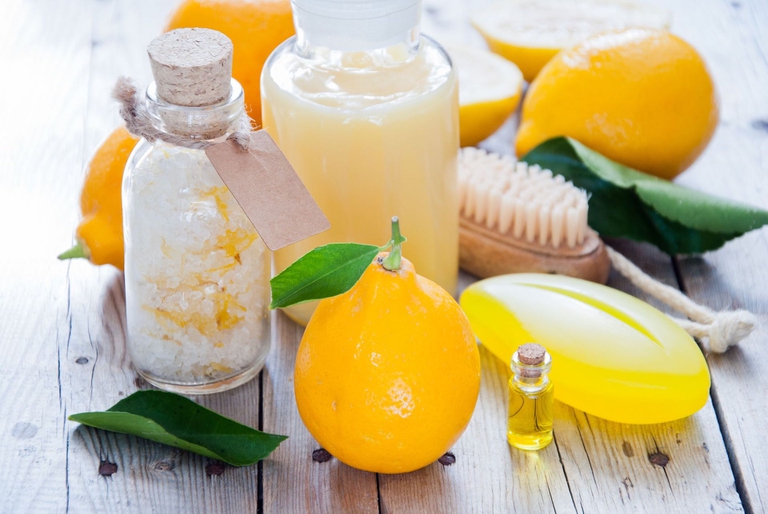
In short, lemons are rarely missing in our homes, especially in the pantry, all that remains is to learn to know this fruit better and take advantage of all its properties, even unexpected ones.
Lemon in short
- What benefits do lemons have? Consuming lemons is very good for multiple reasons.For example in case of nausea due to heavy stomach and slow digestion:Lemon zest infused in hot water is an excellent remedy, also associated with a few teaspoons of sugar.Thanks to the presence of pectin, it helps to lose weight and reduce cholesterol.It is also a diuretic, purifies the skin and counteracts the formation of stones.
- How often do you water the lemon plant? If the lemon plant is in a pot it should be watered every week, keeping the soil moist, but without exaggerating.More often in summer, even once a day if necessary.
- How long can lemons stay on the plant? Lemon fruits can remain on the plant for months without any particular problems other than the slowing down of the fruiting process.
- How to keep a lemon plant at home? The lemon plant must always have good exposure to sunlight, even at home where a warm place must be guaranteed (but away from radiators), avoiding temperature changes and air currents as much as possible (especially if the plant is young).
- When and how do you prune a lemon plant? It is better to avoid pruning lemons in the months that are too hot or too cold, limiting the intervention to thinning the foliage after flowering.
-
What are the contraindications of lemon? In rare cases of citrus allergy it is best to avoid consuming lemon.The presence of citric acid in the fruit can be a problem for those suffering from gastric problems, such as reflux, ulcers or gastritis, which should be checked with your doctor.
- Is drinking water and lemon in the morning on an empty stomach good for you? The topic is debated.It is said that a glass of water and lemon juice consumed on an empty stomach is able to stimulate the immune system and balance the body's pH, improving the beauty of the skin.Adding fresh ginger and turmeric would further enhance its antioxidant and anti-inflammatory effect.Doctors, however, maintain that to date there is no certain data on whether this practice leads to real benefits and indeed the risk is that it could cause dental erosion.
